June 7, 2025 | 04:55 GMT +7
June 7, 2025 | 04:55 GMT +7
Hotline: 0913.378.918
June 7, 2025 | 04:55 GMT +7
Hotline: 0913.378.918
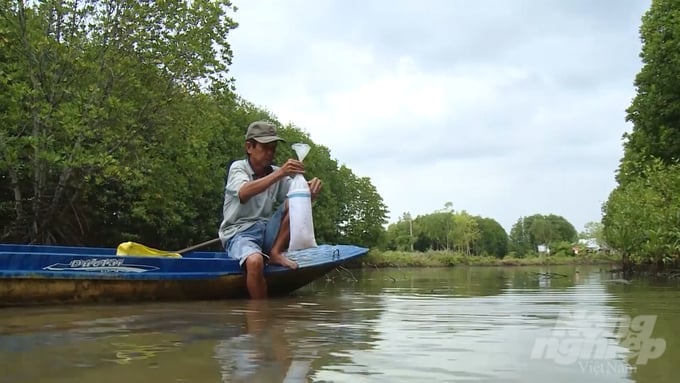
The model for sustainable aquaculture in mangrove forests enables the local community to develop economically and protect forest areas. Photo: Trong Linh.
Ca Mau province houses over 35,000 hectares of mangrove forests, which are located primarily in the districts of Nam Can and Ngoc Hien. As a result of the rich and diverse ecosystem under the mangrove canopy, the aquaculture industry in Ca Mau has experienced significant growth in recent years, with multi-layered, multi-valued, and nature-friendly models.
Notably, models for economic development under the mangrove canopy, such as the shrimp-mangrove or shrimp-mangrove model in combination with crab, blood cockle, and clam farming, have seen positive growth over the years. Consequently, local residents enjoy stable income sources and actively participate in forest conservation efforts in collaboration with the local governments.
With the support of Minh Phu Seafood Corporation since 2014, local shrimp farming activities under the mangrove canopy has improved in terms of effectiveness. This improvement has been attributed to technical training, high-quality shrimp seed supply, and reforestation planning. Minh Phu Shrimp Mangrove Social Enterprise, a subsidiary of Minh Phu Seafood Corporation, pioneered organic and ecological shrimp farming projects in 2013. Minh Phu Shrimp Mangrove Social Enterprise was established in early 2017 with the goal of promoting social and environmental benefits in the mangrove forests of Ngoc Hien district.
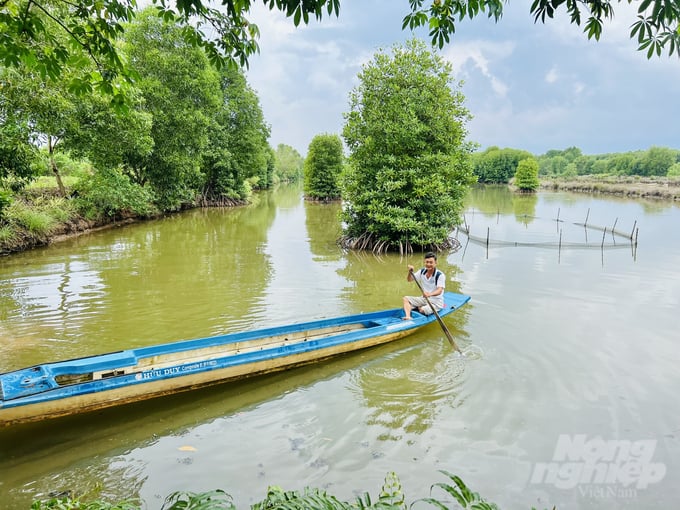
With the shrimp-mangrove model, farmers earn an average income of approximately 80 million VND per hectare per year. Photo: Trong Linh.
Hua Van Thon, a 54-year-old resident of Vien An Dong commune, Ngoc Hien district, revealed that with over 3 hectares of ecological shrimp farming area, he achieved a profit margin 10 to 20% higher than that of traditional farming practices, and fulfilled safety standards. According to him, this occupation requires minimal reliance on machinery or heavy labor; and provides a relatively stable income ranging from 150 to 200 million VND per year.
Duong Vu Phong, Project Manager at Minh Phu Shrimp Mangrove Social Enterprise, reported that the company's certified ecological shrimp farming area has increased by 1,400 hectares, with over 300 new participating households; raising the total area of ecological shrimp farming in the district to nearly 11,400 hectares with over 2,300 participating households. Key project sites include the communes of Vien An, Vien An Dong, and Dat Mui (under the management of Dat Mui Forest Management Board).
Additionally, the World Wide Fund for Nature Vietnam (WWF Vietnam) recently launched the project "Enhancing Climate Resilience for Mangrove Ecosystems and Local Communities in Coastal Areas of Ca Mau Province." The project supported four models for shrimp farming under the mangrove canopy in the communes of Tan An, Tam Giang Tay, Vien An Dong, and Vien An with a total area of 67 hectares. The project aims to expand this area to at least 100 hectares by 2025.
Ta Minh Man, an expert from the Dat Mui Protection Forest Management Board under Ca Mau province's Department of Agriculture and Rural Development, noted: "In the last few years, various organizations and state budget programs have supported the local community in planting and restoring forests. They have also provided training and technical support for shrimp farming under the mangrove canopy, thereby raising awareness among households regarding forest protection."
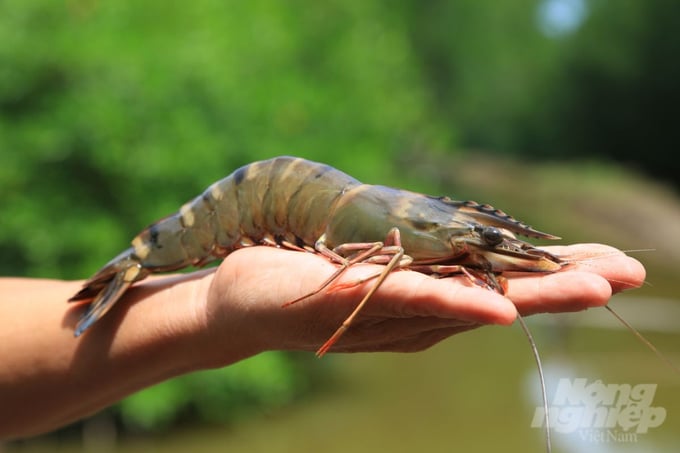
The ecological shrimp-mangrove model in Ca Mau province has gained access to various demanding markets around the world, including the US, Japan, and the EU. Photo: Trong Linh.
Phan Hoang Vu, General Director of the Ca Mau province's Department of Agriculture and Rural Development, remarked: "Shrimp farming activities in the mangrove forests within the districts of Nam Can, Ngoc Hien, etc., have shown remarkable effectiveness, with an average annual profit of approximately 80 million VND per hectare."
The development of the ecological shrimp farming model demonstrates a balance between economic growth and environmental protection by maintaining the biodiversity of the water ecosystem under mangrove canopies. Participants in the model are required to plant and manage forests, and maintain forest coverage on the farming area in compliance with the project's requirements. This initiative helps increase forest cover, enhances soil retention, prevents erosion, and improves resilience against the adverse effects of climate change. Additionally, the model is an effective solution for restoring, protecting, and developing forests in coastal areas.
Tran Hoang Lac, Chairman of the Ngoc Hien District People's Committee, noted: "The district currently houses over 73,000 hectares of shrimp-mangrove farming area, which include special-use forest land and protection forest land. According to the district's plan, more than 23,000 hectares will receive an ecological shrimp farming certification. To date, approximately 20,000 hectares have received this certification, with three notable companies participating in the value chain: Minh Phu Shrimp Mangrove Social Enterprise, Camimex Ca Mau Seafood Import-Export Company, and Seaprimexco Nam Can Seafood Import-Export Company."
Translated by Nguyen Hai Long
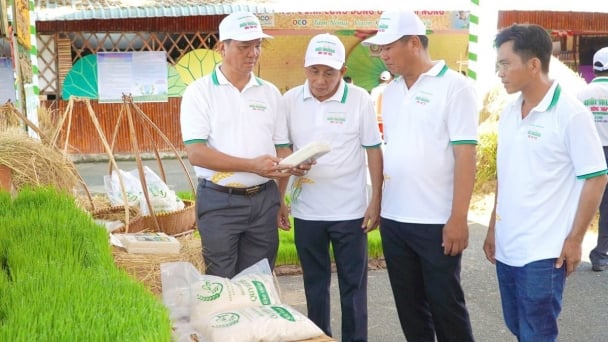
(VAN) Dong Thap has launched a meeting in response to the Action Month for the Environment under the theme 'Live Green - Join Hands for a Green Economy' at Tram Chim National Park.
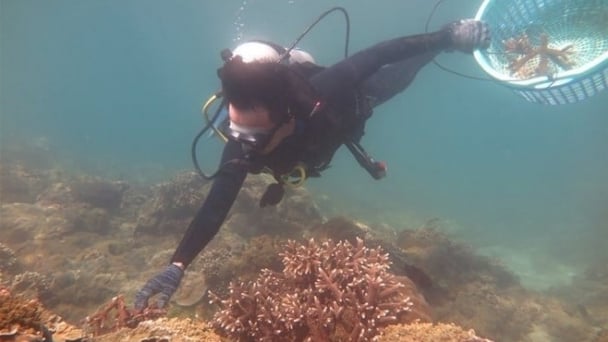
(VAN) The ocean has the capacity to absorb millions of tons of carbon, provided that mangrove forests, coral reefs, and biodiversity are protected.
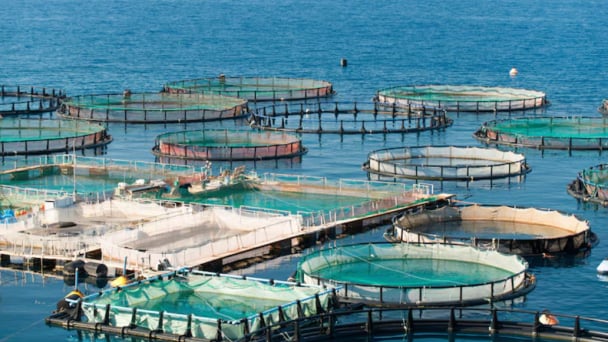
(VAN) Technology is redrawing the map of Vietnamese aquaculture: more modern, greener, and more sustainable.

(VAN) Novel process harnesses machine learning to reveal groups of genes that determine how efficiently plants use nitrogen.

(VAN) Several scientists and farmers are experimenting with soil treatment in some key durian-growing regions such as Cai Lay (Tien Giang), Dak Song, Gia Nghia, and Dak R’lap (Dak Nong).
/2025/05/25/4127-3-073637_820.jpg)
(VAN) Thanks to the promotion from an FAO-implemented project, vegetable production in greenhouses in Moc Chau has seen strong development, from 1.5 hectares in 2021 to nearly 50 hectares in 2024.

(VAN) FAO has recently supported USD 140,000 to implement the project 'Risk mitigation human-animal interface risks through disease control initiatives in pig farming.'